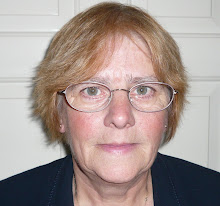Last blog published July 1st .
Personal circumstances have interrupted communications for a while but now up and running again and eager to progress with spreading the word about developmental help for children with difficulties.
All labels include an element of developmental delay so that should be addressed first so difficulties that remain can be identified. It is more important than ever to address this in early years education because cognitive demands have increased. The child with developmental delay may struggle and lose confidence because they are not ready for academic demands.
Teaching is one side of learning but the developmental state of the child is the other. Failure to address the mismatch may be hidden for a time by continuous repetition but will eventually show up as underachievement or academic failure, anxiety and distress. This will impact on the whole family as well as in school.
It is vital that those involved in education, particularly early years, are well informed on the connection between learning and development. Addressing developmental issues is more important in early education than any reference to cognitive skills and will yield better results long term and allow the children to enjoy education and learning.
To help spread information Tools For life is sponsoring a one day event organised by The Developmental Practitioners Association. DALEEN SMITH will be talking about the developmental eye - ear connection and will be making reference to labels such as autism. Children need eyes and ears functioning at optimum level for learning. We need to know where the children are on this spectrum and how best to accommodate their needs to get the best results.
GAYNOR Ralls will be updating us on the effectiveness of cold laser treatment for developmental delay, including autism. Carol Mannion will be sharing her knowledge of movement for early years Waldon Method et al. The EASIE programme , with the initial teacher, researcher Brenda Lloyd, will be on show to demonstrate how easy it is to deliver the programme across whole classes, along with Pauline Allen (light and AIT) and Janice Graham (Rhythmic Movement)
Shared expertise helps everyone to help the children.
This event is on Saturday 22nd September at Holy Trinity Centre, Newark on Trent 9.30- 4pm
Cost is £10 plus £6 for lunch.
Book via Gwyneth Jeyes @
01636 673045 or gwyneth.jeyes@btinternet.com
Tuesday 30 June 2015
Update
At this moment Nettl of Newark are updating my website so it is compatible with all screens including mobile.
My website is there primarily to give information on developmental programmes which help children with learning. The children may have a label such as dyslexia, dyscalculia, ADHD, autistic spectrum , dyspraxia or just be underachieving in school and unhappy. Developmental delay is a part of all labels and although addressing this is not a 'cure all' it is a starting point in helping reduce difficulties and adverse behaviours that may be affecting the children.
EASIE is a programme for use in schools which can address developmental progress in a fun way with a whole class of children together. Learning readiness is vital for children in the school setting because learning is something children do themselves. Teachers teach but children learn. We have good teachers but to get the best results for all, the children need to be developmentally ready for learning.
Primary Movement and TLP or Listening training programme are two programmes which can be used with both children and adults, to great effect.
Adults can also benefit from input because problems of children can run into adulthood and impede progress in later life.
Education in early years should not be about reading and writing until the children are developmentally ready for it. Asking children to take on cognition too early sets the children up for failure, lowers self esteem , reduces motivation and produces unhappy children who underachieve. We need a change of attitude to change results rather than changes in curriculum and grading schemes.
My website is there primarily to give information on developmental programmes which help children with learning. The children may have a label such as dyslexia, dyscalculia, ADHD, autistic spectrum , dyspraxia or just be underachieving in school and unhappy. Developmental delay is a part of all labels and although addressing this is not a 'cure all' it is a starting point in helping reduce difficulties and adverse behaviours that may be affecting the children.
EASIE is a programme for use in schools which can address developmental progress in a fun way with a whole class of children together. Learning readiness is vital for children in the school setting because learning is something children do themselves. Teachers teach but children learn. We have good teachers but to get the best results for all, the children need to be developmentally ready for learning.
Primary Movement and TLP or Listening training programme are two programmes which can be used with both children and adults, to great effect.
Adults can also benefit from input because problems of children can run into adulthood and impede progress in later life.
Education in early years should not be about reading and writing until the children are developmentally ready for it. Asking children to take on cognition too early sets the children up for failure, lowers self esteem , reduces motivation and produces unhappy children who underachieve. We need a change of attitude to change results rather than changes in curriculum and grading schemes.
Subscribe to:
Posts (Atom)
